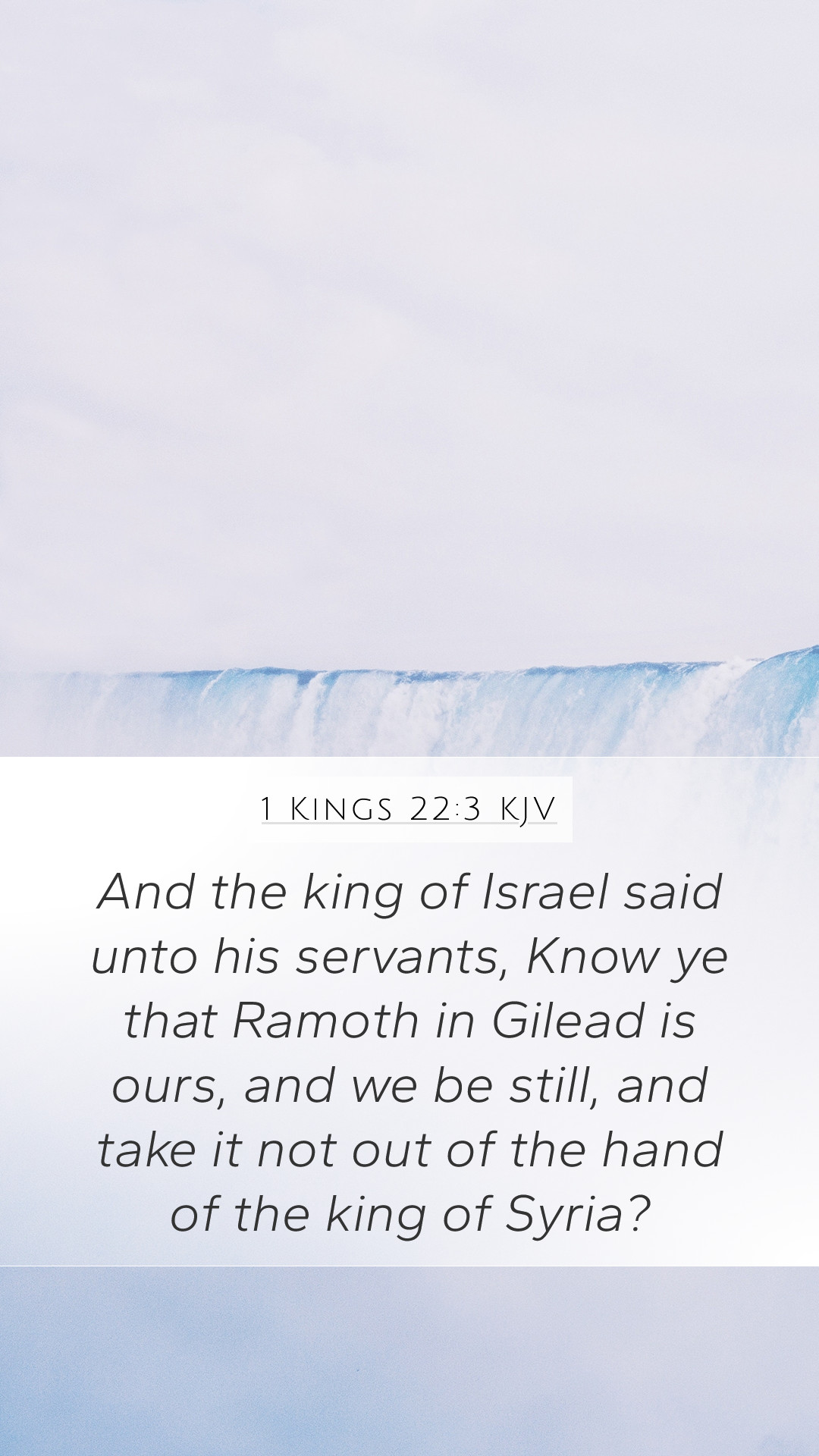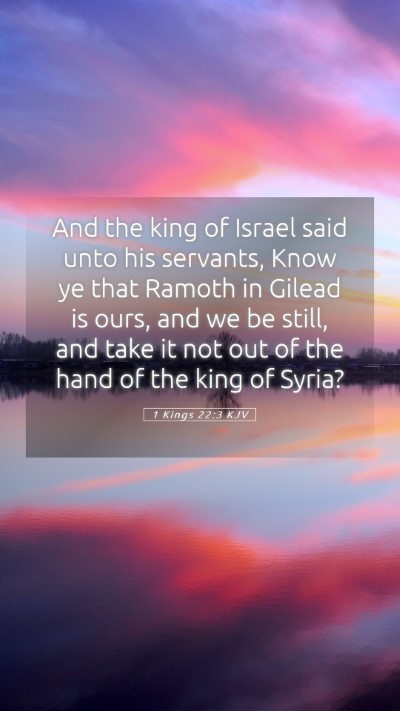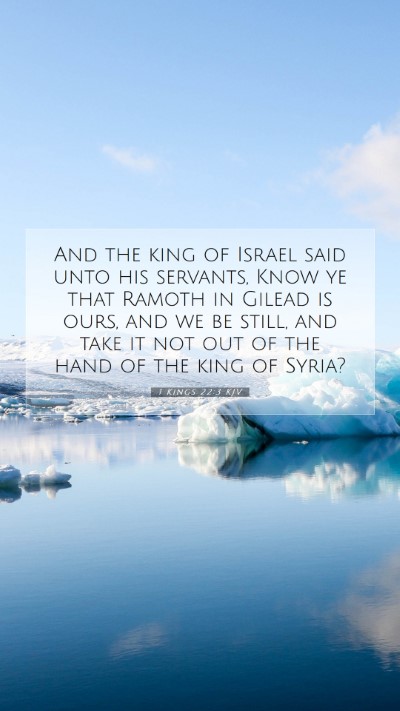Understanding 1 Kings 22:3
Bible Verse: 1 Kings 22:3 - "And the king of Israel said unto his servants, Know ye that Ramoth in Gilead is ours, and we be still, and take it not out of the hand of the king of Syria?"
Overview of the Verse
This verse presents a conversation between the king of Israel, Ahab, and his servants regarding the city of Ramoth in Gilead. Ahab expresses his interest in recovering this city, which was under the control of the king of Syria. This leads to significant geopolitical implications and spiritual undertones that are crucial for understanding the text's broader narrative.
Insights from Public Domain Commentaries
-
Matthew Henry's Commentary
Matthew Henry emphasizes Ahab's awareness of the lost territories of Israel, particularly Ramoth. He points out Ahab's complacency in not taking action to reclaim it and views this as a reflection of Ahab’s overall spiritual state. Henry suggests this illustrates the contrast between a king’s duty to act for his people and his failure to do so due to fear or indecision.
-
Albert Barnes' Notes
Barnes provides a historical context that focuses on the importance of Ramoth in Gilead. He explains that the city was strategically significant due to its location. Barnes brings out the fact that Ahab’s inaction shows a lack of decisiveness associated with the leadership during that period. He reminds the reader of the prophetic warnings that had been given regarding Ahab’s rule and the consequences of his decisions.
-
Adam Clarke's Commentary
Adam Clarke discusses the motivations behind Ahab's desire to reclaim Ramoth. He notes the implications of such territorial disputes not only on a political level but also on a spiritual one, highlighting the sins of Ahab. Clarke delves into how this desire aligns with God’s judgment against Ahab for his previous idolatries and disobedience.
Biblical Context
To fully understand this verse, it is necessary to consider the historical and political settings of the time. The northern kingdom of Israel faced continual threats from surrounding nations, notably the Syrians. Ahab’s reluctance to act signifies a deeper spiritual malaise, consistent with the prophetic narratives surrounding his kingship.
Thematic Elements
-
The Role of Leadership: This verse emphasizes the responsibilities of leaders to protect and reclaim what rightfully belongs to their people, highlighting Ahab’s failure in this regard.
-
Spiritual Implications: Ahab's failure to act can be interpreted as a spiritual decay and lack of faith, reflecting how leadership influenced the moral state of the nation.
Cross References
- 1 Kings 20:34 - Discusses the previous enmity between Israel and Syria.
- 2 Chronicles 18:2 - Highlights a similar narrative of Ahab seeking assistance from Jehoshaphat, king of Judah.
- Deuteronomy 3:10-11 - Refers to the significance of Ramoth and the land of Gilead.
Application and Reflection
The study of 1 Kings 22:3 encourages readers to reflect on the nature of their responsibilities, especially in leadership roles. It speaks to the importance of active engagement in one’s community and the broader implications of inaction. In accordance with the spiritual lessons within this verse, believers are prompted to consider how they can reclaim what is right and just in their lives and communities, particularly when faced with opposition or disheartenment.
Conclusion
This analysis of 1 Kings 22:3 presents multiple dimensions of understanding through the insights of respected biblical commentators. It challenges readers to look beyond mere historical facts and to grasp the profound spiritual lessons that emerge from Ahab's situation regarding leadership, responsibility, and faithfulness.
Keywords Featured
This commentary serves as a tool for bible study insights and a pathway to deeper bible verse interpretations. It also poses questions relevant for bible study groups, aiding in the application of Bible verses to daily life.


